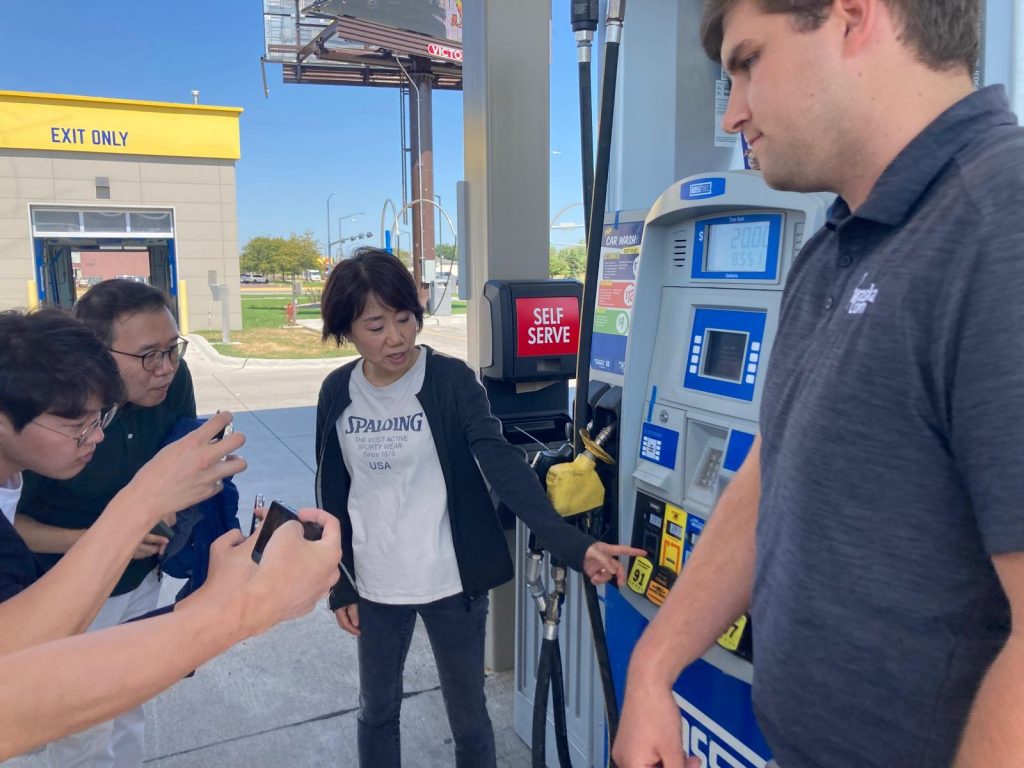Earlier this month, the U.S. Grains Council (USGC) escorted a group of media members representing the Korea Automobile Journalists Association on a tour of the U.S. ethanol value chain and organized meetings with leading industry stakeholders. The goal: Exposing them to the many environmental, economic and human health benefits of ethanol blending.
“The Council has been working closely with the U.S. Department of Agriculture’s Foreign Agriculture Service (USDA’s FAS) in Seoul and industry stakeholders for years to advance biofuel policies in the country, and this program is a continuation of that effort,” said Haksoo Kim, USGC director in South Korea.
“South Korea has high market potential for U.S. fuel ethanol, potentially up to 300 million gallons annually, so it is essential we continue exploring every avenue to help generate new demand for road ethanol and sustainable aviation fuel (SAF).”
The program began in Chicago and the team met with Dr. Steffan Mueller, professor at the University of Illinois at Chicago, to learn about expected carbon reduction effects in South Korea under an E10 policy. Later that day, the group spoke with Dr. Michael Wang’s team at the Argonne National Laboratory about the greenhouse gas (GHG) reduction effect of ethanol’s lifecycle and the need for a renewable fuel standard policy in South Korea.
With the support of Nebraska Corn, the journalists had the opportunity to visit stakeholders across the value chain from corn farms to gas station chain in Nebraska, learned about the experience and economic and environmental impacts of the E10 policy in the United States, and interviewed key stakeholders. In particular, the group gained a deeper understanding of the need for on-road ethanol policies from Nebraska’s progressive E30 project and carbon sequestration and storage plans for additional carbon reductions.
The reporters then traveled to Washington, D.C., to interview U.S. Grains Council CEO Ryan LeGrand and Vice President Cary Sifferath; Growth Energy Vice President Jake Comer; and Renewable Fuels Association Vice President Ed Hubbard for their thoughts and suggestions on how to help introduce a road ethanol policy in South Korea.
For the final stop on the agenda, Growth Energy invited the group to the NASCAR Quaker State 400 in Atlanta, where participants witnessed E15 fuel used in the cars and, through interviews with race participants and officials, reaffirmed the economic and environmental benefits of fuel ethanol.
“Through this program, the Korea Automobile Journalists Association has become convinced that introducing a road ethanol policy is necessary in Korea to achieve carbon neutrality by 2050, and the reporters have published 45 news articles supporting the introduction of an ethanol policy in South Korea so far, which is expected to have a ripple effect on the Korean government and related industries such as oil refineries,” Kim said.
“Korea is one of the largest markets for U.S. industrial ethanol, but we need to create new demand such as road ethanol and SAF, and we will continue to work to expand the Korean ethanol market through these ongoing programs.”
Learn more about the Council’s work in South Korea here.
About The U.S. Grains Council
The U.S. Grains Council develops export markets for U.S. barley, corn, sorghum and related products including distiller’s dried grains with solubles (DDGS) and ethanol. With full-time presence in 28 locations, the Council operates programs in more than 50 countries and the European Union. The Council believes exports are vital to global economic development and to U.S. agriculture’s profitability. Detailed information about the Council and its programs is online at www.grains.org.


